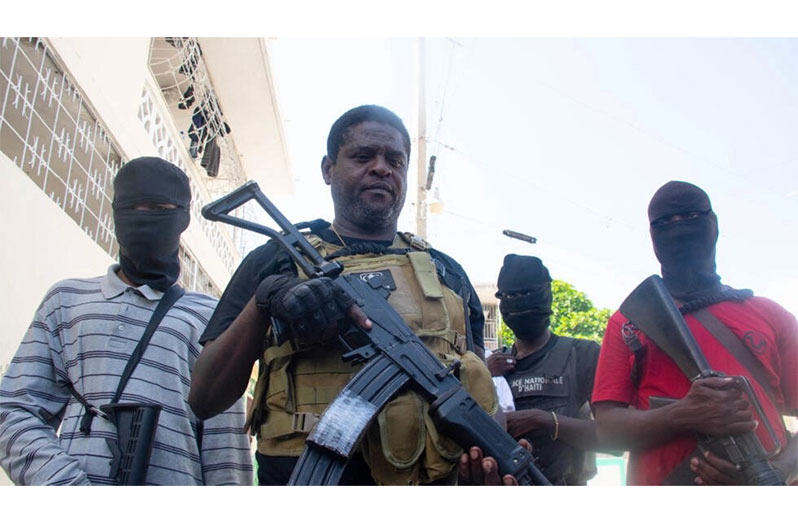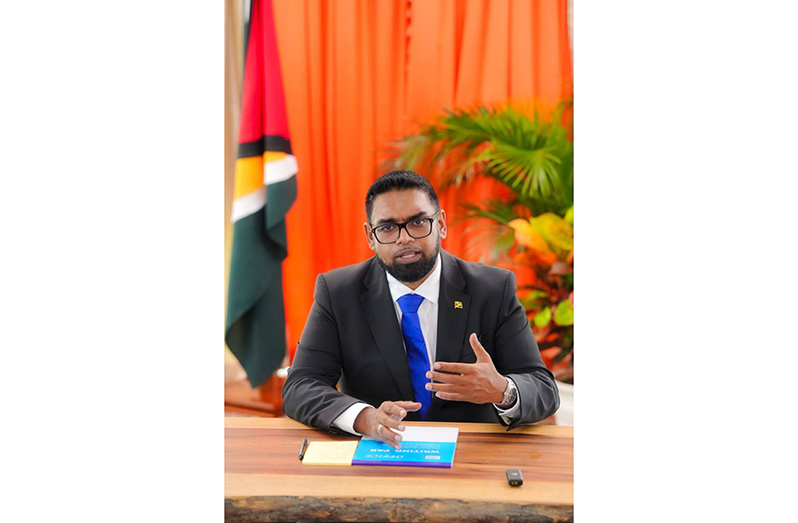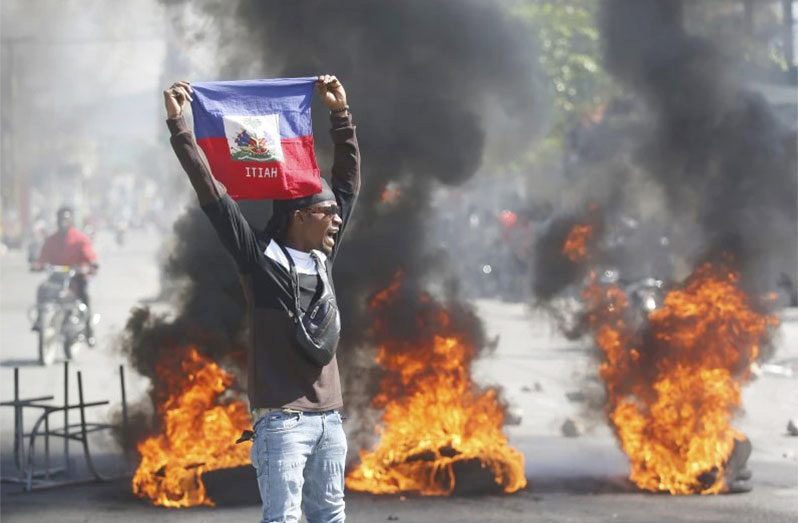By Feona Morrison
WITH news of a powerful Haitian gang leader threatening civil war and genocide in the capital, Port-au-Prince, if Prime Minister Dr Ariel Henry does not resign, Caribbean leaders are working around the clock to devise a plan to alleviate suffering on the French-speaking island.
This was disclosed to reporters on the sidelines of an event on Thursday by President of Guyana and the current Chairman of the Caribbean Community (CARICOM), Dr. Irfaan Ali, minutes after he left a regional meeting on the situation in Haiti.
According to international news reports, heavily armed gangs attempted to take over Haiti’s main international airport on Monday, exchanging gunfire with police and soldiers in the most recent attack on important government locations in a wave of violence that also included a mass escape from the nation’s two largest prisons.
They wanted to stop 74-year-old Henry from returning from his trip to Kenya, which he visited to sign an agreement on the deployment of a multinational police force to the Caribbean Island.
Henry travelled to Kenya after attending the 46th Regular Meeting of the Conference of Heads of Government of CARICOM which was held in Guyana from February 25-28.
Then, on Wednesday, it was reported that Jimmy Chérizier, also known as “Barbecue,” the leader of the “G9 Family and Allies” and a former Police officer sanctioned by the United Nations (UN) for violating human rights, had threatened to start a civil war that would eventually turn into a genocide if the Prime Minister did not step down.

According to President Ali, efforts are being made by regional leaders to develop a “Haitian-led solution for the people of Haiti and for Haiti.”
He said that the state of affairs in Haiti was depressing for the entire region, but emphasised that CARICOM has a “responsibility to do everything we can to enable the Haitian people to find the consensus and to find a path that is Haitian-led and Haitian-owned.”
President Ali reiterated that the people of Haiti deserve stability and normalcy.
“We are working aggressively on this. We have dedicated almost all of our time over the last number of days. This must be a Haitian-led initiative. This must be a Haitian -owned initiative and that is what is important for us.
We have teams of persons talking to all the stakeholders trying to get a consensus. We are working with all other partners because everybody needs to be at the same place,” the Guyanese leader said.
He emphasised that because of the intricacy of the problem and the potential consequences to people’s lives and livelihoods, an early solution is necessary. However, Dr. Ali did not give a timeframe by when specifics about the anticipated solution would become available.
In 2018, protests began in communities throughout Haiti in response to increased fuel prices. Over time, those protests evolved into demands for the resignation of Jovenel Moïse, the then-president of Haiti, who was later assassinated on July 7, 2021 at his residence in the capital.
The CARICOM country is still experiencing an upsurge in violence.
Henry’s de-facto administration is being targetted for overthrow by Chérizier and his group.
Haiti’s de facto rulers have intensified their efforts to expedite the process of appointing a new presidential council to govern the nation.

CARICOM leaders have determined that the 15-nation regional bloc will take the lead in conducting a needs assessment to support the significant advancement in hosting elections in Haiti. Haiti is expected to host elections by mid-2025.
To combat gang violence in Haiti, the international community is pressing for funds to be raised for a foreign military force. Kenya’s High Court has declared that the plan to send a Kenyan police force to Haiti, which is supported by the United Nations, is unconstitutional.
According to the plan, a multinational force would have been led by 1,000 Kenyan ranks and deployed to Haiti. As the region looks for a political solution for Haiti, CARICOM will shortly gather in Jamaica with important Haitian players.
In the meantime, Chérizier recently informed reporters that killings that would occur if Henry was allowed to stay in power would only be the fault of western ambassadors. Haiti has more than 11 million inhabitants.



.jpg)









